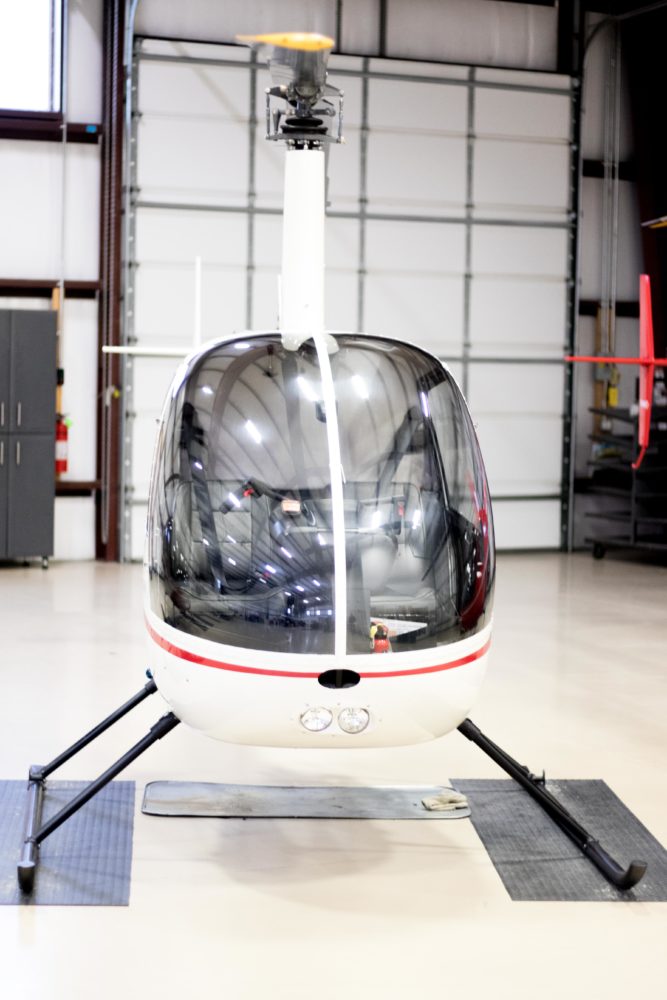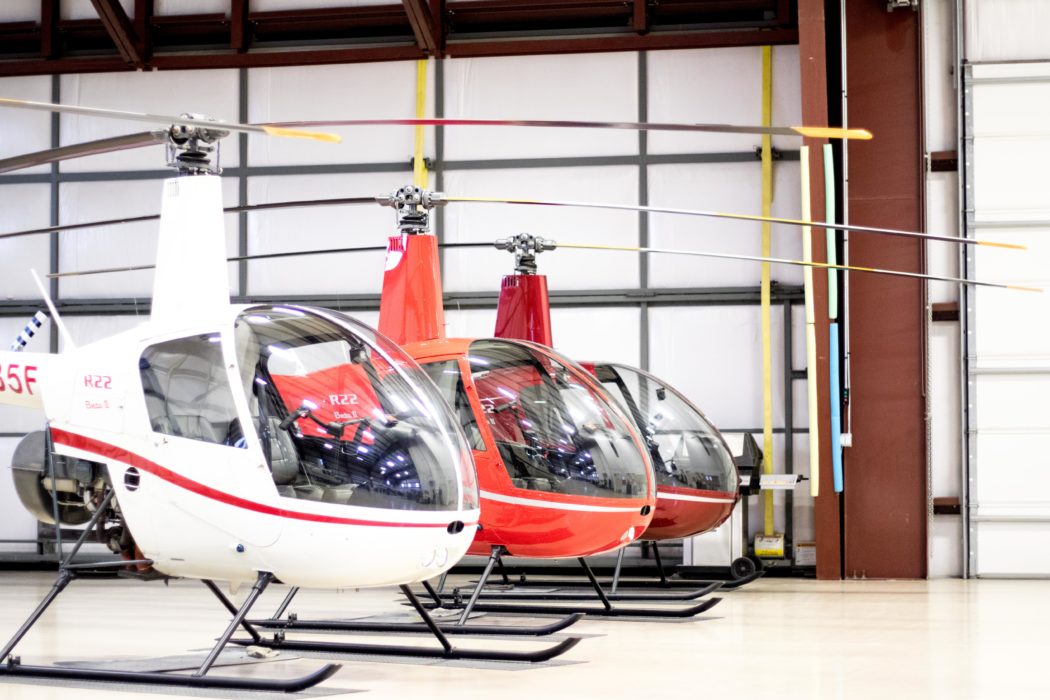USU’s high-flying aviation program adds to its fleet
The Utah State University aviation program expanded its in-house fleet with the purchase of helicopters for the rotorcraft program Nov. 1, and now looks to use the helicopters to further prepare pilots and mechanics for working in the field.
“We’re evolving,” said Bruce Miller, department head of USU’s School of Applied Sciences, Technology and Education, which oversees the aviation program.
The rotorcraft program started back in 2013, and USU leased the helicopters for the past four years from Mountain Ridge Helicopters.
“We didn’t want to make the big investment without knowing our student demand and the expenses associated with it,” Miller said.
Now that the program has continually been successful in training helicopter pilots and finding them jobs post-graduation, the aviation program felt it was time to expand.

“At this point we’ve evolved to that point where it just made sense that we should purchase the aircraft and continue,” Miller said. “The students are still there, it’s really just an administrative change of who’s owning the helicopters they’re flying in. They belong to the university now.”
Before the purchase of the helicopters, Mountain Ridge staff instructed both USU students and their own trainees in the helicopters, operating as contractors for USU.
“It just makes it easier,” Miller said. “We’re trying to make it a seamless change, and in fact there was only one day they didn’t fly, simply because we had to transfer over the licenses and make sure the insurance still covered it all.”
USU currently has 225 students in the fixed-wing flight program, as well as 40 in the rotorcraft program.
“We are both expanding in scope in our commitment in trainings, and that we are to be competitive, be here to work in the market and train pilots,” Miller said.
When students graduate from the aviation program, careers abound, and for most of them, in the field they have always wanted, Miller said.
“Students in the flight program have, for the most part, wanted to be pilots for a lot of their lives,” he said.
Jobs for airplane pilots are mostly focused in the commercial field, but also can include scenic tours, shipping and industrial jobs, Miller said. Jobs for helicopter pilots, however, are more varied.
“The use of helicopters in air medical transport is increasing, as is use in industry,” Miller said. “Helicopters are the main way to transport people to oil rigs in the ocean. It’s how they do surveys for wildlife and forests. It’s how they set large utility poles into rough terrain. A lot of helicopters are for heavy industry use, though there are also jobs for scenic tour pilots and commercial pilots as well.”
Students that join the aviation program are very dedicated, Miller says, and pay extra tuition for the skills, certifications and flight costs.
“It’s a costly program to get into, and for that we have very good student retention,” Miller said. “For the flight program, a student is going to pay about $60,000 extra in their tuition, while a student in the helicopter program pays an even $100,000.”
Along with the flight program, students can also become certified as airframe mechanics through the aviation program.
“There’s about 60-65 students in our maintenance program, and they get certificates in what is called the A&P program, which stands for Airframe and Powerplant,” Miller said.
A&P licenses are the pinnacle of mechanic certifications, Miller said.
“Besides airlines, they’re also being sought after by groups like NASCAR, by the wind turbine people, General Electric and others because they are very meticulous, and they know how to put things together,” Miller said. “There is great demand for those mechanics.”
The aviation program is proud to say it has a 100 percent job placement rate among the mechanical majors, and nearly the same for pilots, he said.
“We’re just plugging away,” Miller said. “We’re in a really good competitive place right now and we just want to maintain our progress, make sure everyone stays safe and has a good career.”
—carter.moore@aggiemail.usu.edu
@carterthegrreat

